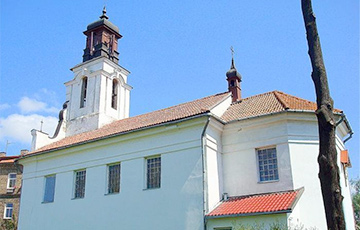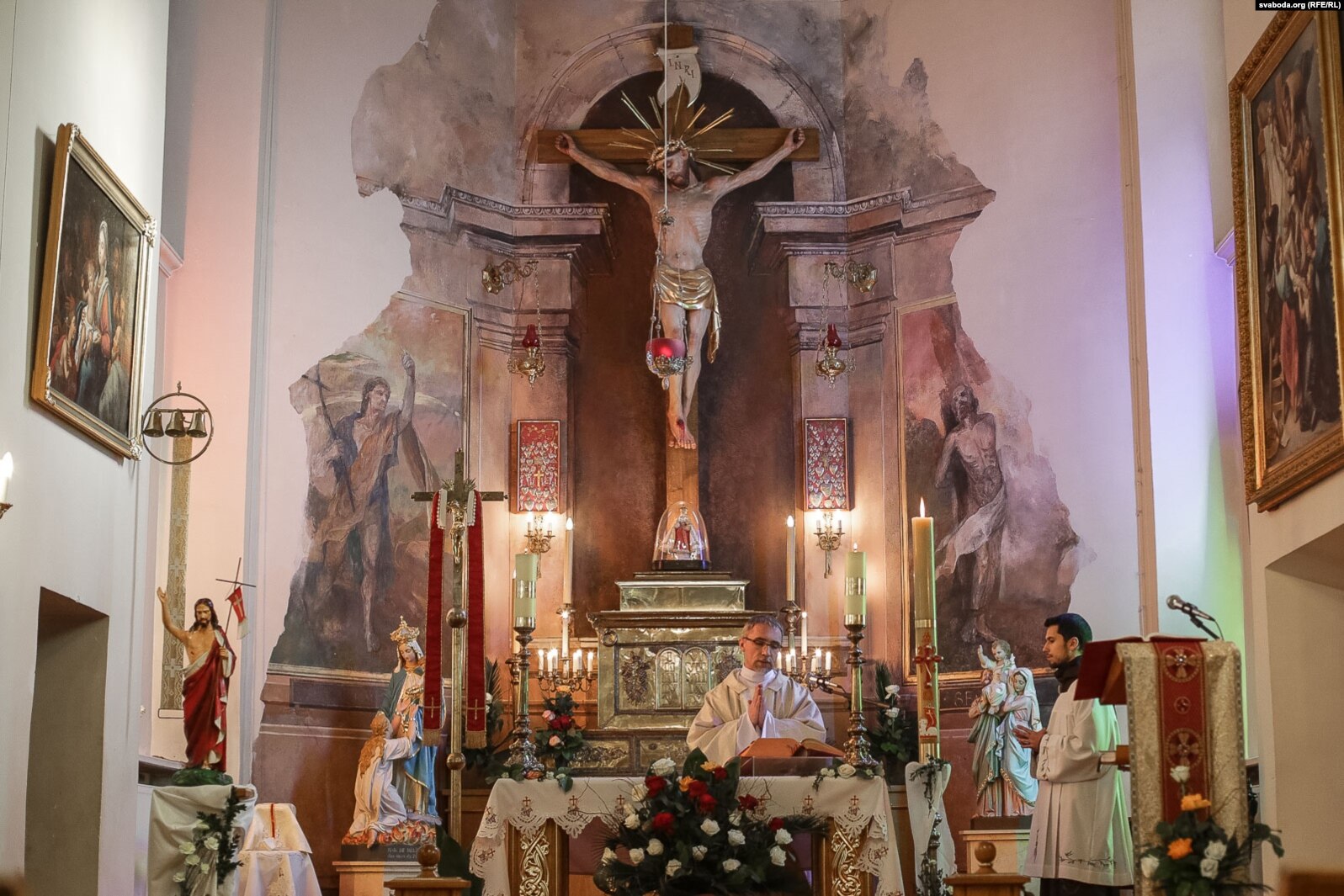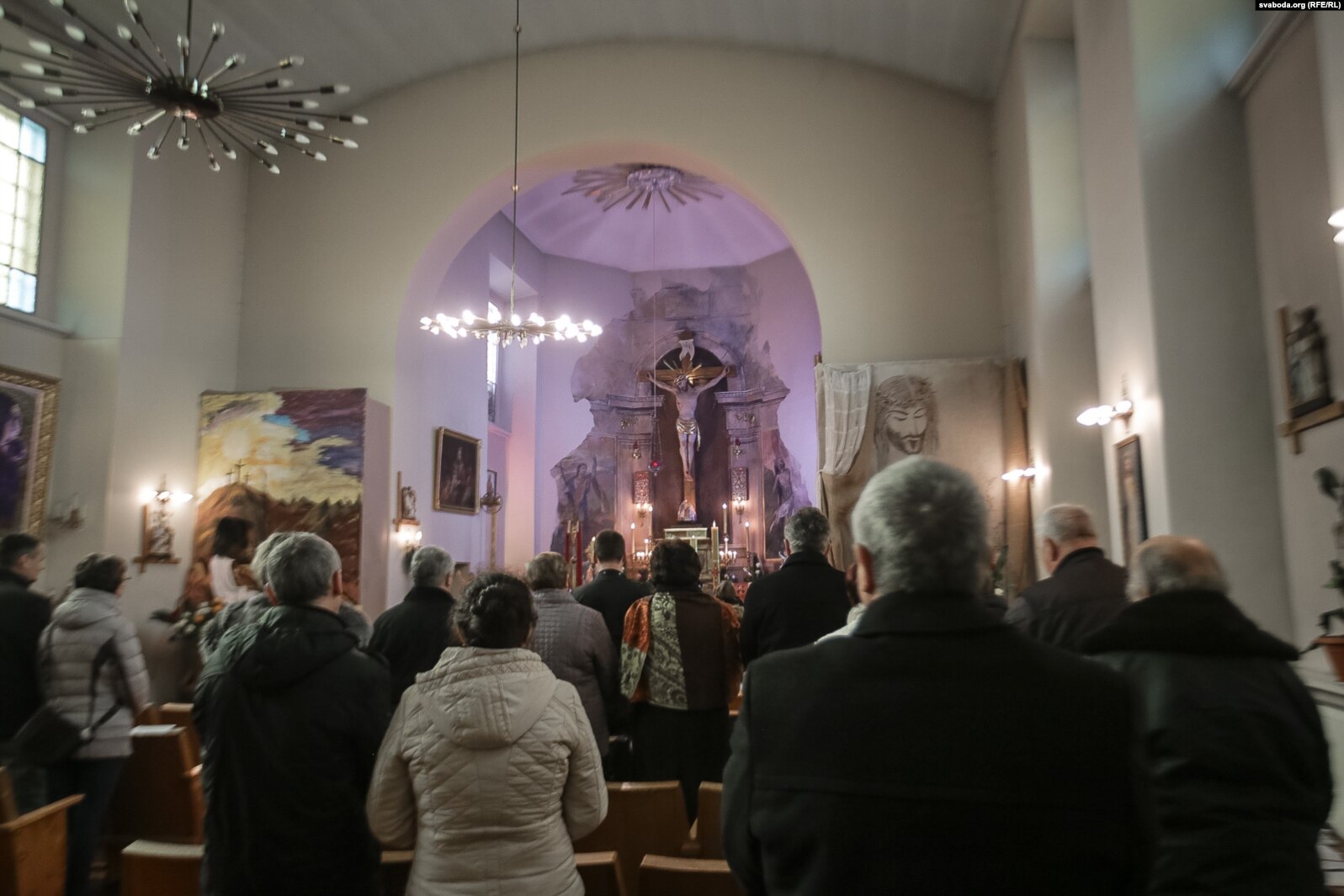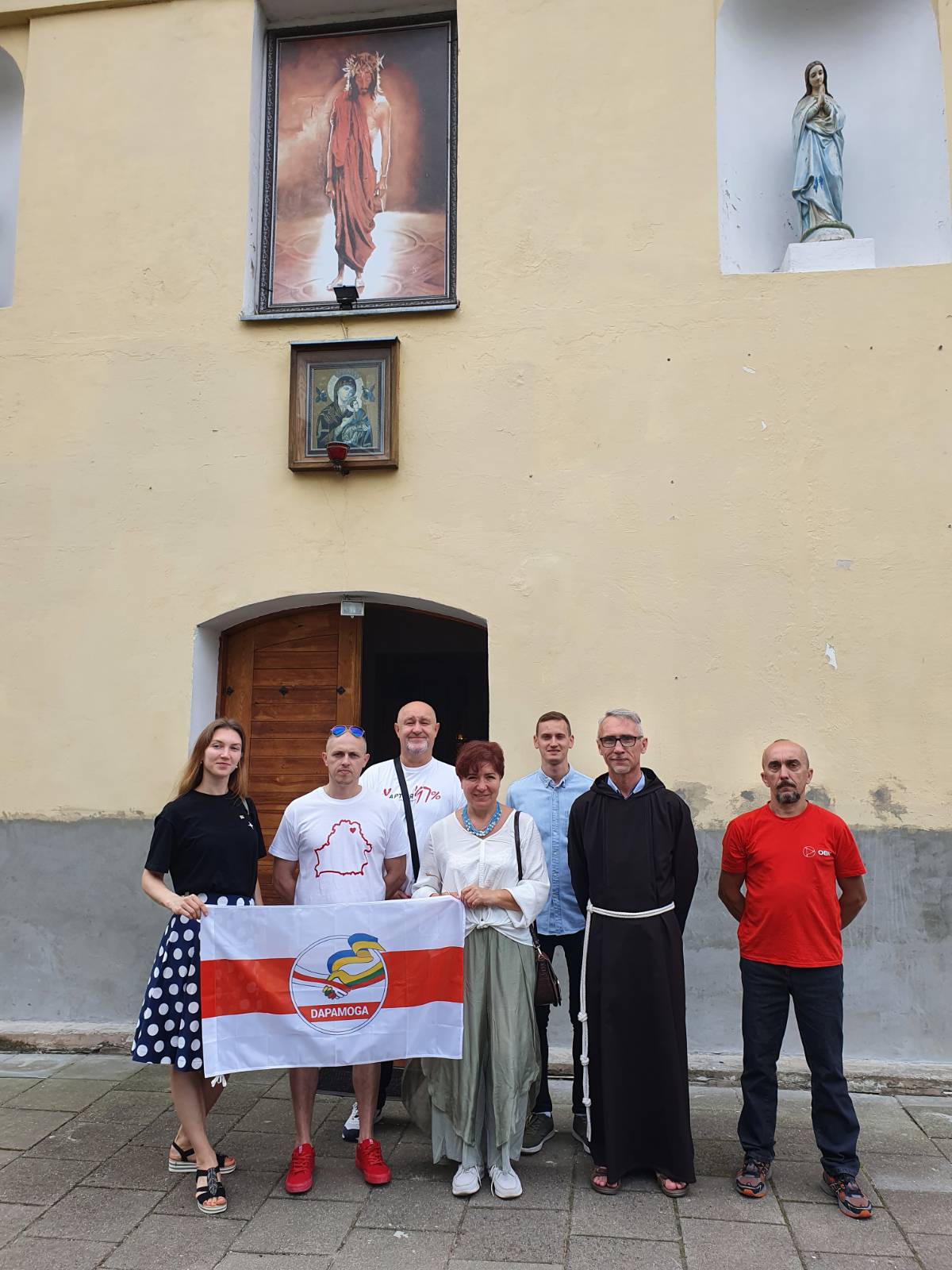Priest Aryush Malyska: Risen Poland Can Become Example For Belarusians
5- 20.09.2022, 11:16
- 8,968

It is time to take responsibility.
The Belarusian Church of St. Bartholomew in Vilnius is located in a special place for the Lithuanian capital - Uzupis.
This church has been considered Belarusian since 1997, but Belarusian parishioners got the opportunity to pray in their native language only in 2016. The new prior of the church, Aryush Malyska, a Pole, who has studied our language thoroughly and has taken to heart the problems of Belarusians for ten years of work in Belarus, was the first to hold a completely Belarusian-language mass.
The Charter97.org website spoke with the holy father about how Vilnius has once again become one of the largest centres of Belarusian identity, how to get out of the circle of disappointment and why people need to take responsibility for their lives.
- We have had services in Belarusian almost from the very beginning. The only problem was that the Belarusians did not really feel "at home". Fondly-remembered Jan Shutkevich, when he returned to Vilnius, had the idea of creating Belarusian-language services. But the Belarusian-Catholic community was not united, there were few people who could pray in Belarusian. The same problem was in Belarus itself. At that time services in the church were held in Polish with some parts introduced in Belarusian. This caused, shall we say, certain conflicts between a part of those who felt Polish and did not agree to pray in Belarusian, and the Belarusians themselves, who wanted to pray only in their native language.
The change of the priest did not make much difference. So after many requests from the Belarusian community to Bishop Gytantas Grusas, he asked then Archbishop of Minsk and Mahiliou Tadeusz Kondrusiewicz to help the Belarusian community in Vilnius to find a priest from Belarus. Archbishop Kondrusiewicz asked our Custody for help, our Order of Friars Minor Capuchin in Belarus agreed to cooperate and chose me.
In 2016, I came to Vilnius from Minsk, and regular services in the Belarusian language began at that time. Today there are only Belarusians in our church, the Poles hardly ever come. And those who do come either have someone in the family from Belarus, or simply sympathize with the Belarusians, they understand that they come to the liturgy in the Belarusian language.
I can say that after 2020, a lot of people who fled from Belarus because of political persecution, appeared in our church. They were looking for some kind of spiritual refuge for themselves and our church became such a refuge for them.

- How did Vilnius residents - Lithuanians, Poles, Belarusians - help Belarusian refugees?
- This happened not through the church itself, but through organizations that appeared and started working almost immediately. Our parishioners were in those organizations, joined the work and helped in that way. There were always prayers, openness in the church and there was a memory of refugees. Whenever someone needed something, I made announcements. But the main burden of such help fell on the shoulders of the civil society, people self-organized, finding their own ways to solve problems.
Sometimes the Caritas charity also addressed people through us. So it was more of such organized help, not spontaneous in the sense that "the priest came up with something and did it", "met someone and went to help". Even when someone applied directly to the cathedral, we contacted the necessary organizations so that it would be organized, because such help is the best.
- Do you see a certain symbolism in that Vilnius, after a long time, has once again become one of the largest centres of Belarusian identity?
- Everything can be linked and interpreted as some kind of signs or something like that. But there are several reasons why it happened that way. In addition, the fact that Vilnius is close to the border, close to Belarus, has also played a role; it is one of the obvious places to flee to.
Despite the fact that the communities and groups were not very numerous, the Belarusian community in Vilnius was quite active. This was enough for there to be points from which one could push off and just start acting. They became the places from which subsequent activities developed.
- Now lots of Belarusians are facing suffering, some have relatives and friends in prison. What can one say to such people who are losing faith and hope in these dark times?
- First of all, one has to stop thinking in terms of a victim. This only leads to a person becoming more depressed and shifting responsibility for their lives to others. But others don't know what a particular person's psychological needs really are, spiritual or even material. First of all I tell people that when you are in this situation, the first thing to do is to get out of this feeling of being a victim.
The injustice that happens, it happens almost every day on a different scale, from quarrels in the family to the processes that take place in society. Therefore, a person should not strike an attitude of victim, because in this case he is striking a passive attitude, he will not be able to manage his life. That is the road to depression and self-pity.
Every situation carries a double possibility, which lies first of all in the attitude towards the reality that meets us. It is possible to treat it as a victim, a sufferer, to retreat because of it, or it is possible to treat it as a new assignment for us. Even though it brings suffering and disappointment, the way I deal with this situation is up to me. It is, of course, real suffering, but you have to stop whining and nagging, it won't do any good.
We need to take charge of our lives, create goals for ourselves, and when we have this or that problem, we need to think about how to deal with it, not why we have it. We can find a thousand answers to "why" but it will not solve anything. When we ask ourselves "how", it is a question of life, not death, and it helps to get out of the circle of frustration and helplessness.

- What practical things can Belarusians do today to bring the victory of good in Belarus closer?
- As a priest, I can say from the perspective of Christianity, because the task of my life is to spread the light of the Gospel, and thus - understanding of the dignity of man and every person. What I see, and what is missing in some cases, is the need for people to take responsibility for their lives, not to shift it onto others. This can also be seen in democracies, even in Lithuania. When you talk to people you often hear the viewpoint that "what depends on us, the little ones? They are the ones who are on top and they are going to decide everything". This is a very wrong attitude to the reality, which means that people do not respect themselves, they write themselves off as if their personality does not matter. But another question can be asked: "Who is there to replace you?"
We often repeat that there are no irreplaceable people. Maybe that is true in a functional economy, someone can do the work for us. But nobody can replace us as individuals, each of us is unique. So it is important to maintain this awareness of your own importance and the importance of what you are doing. Anyone who is engaged in a work that elevates human dignity, a particular person, gives a sense of self-importance, is doing important work.
From my own experience, I can see that this is also the case in the church. When there are certain goals that we want to achieve, there are usually a few people who genuinely want to and can help in all things and devote their time to a common cause. But most of the people remain in the background, they don't do anything or even want to. When they see that there is someone who has come forward and is doing something, then "let him do it, and we will live our lives". It is very important to keep people personally active so that everyone could personally see himself and his activities, including - his goals in life, to take this as a blueprint for change.
This is not a new idea - it is the idea of positivism, which was in the divided Rzeczpospolita. It led to the resurrection of the Rzeczpospolita in the form of the Polish state. It seems to me that this experience could be used to strengthen the identity, the popular, Christian identity of the people, so that they would know themselves what they want.
Now there are a lot of desires related to the present situation in Belarus, desires to change what is now. But there are no positive goals answering the questions of "how" and "what then". And this derives from the fact that people themselves often do not know what to do in their lives.











